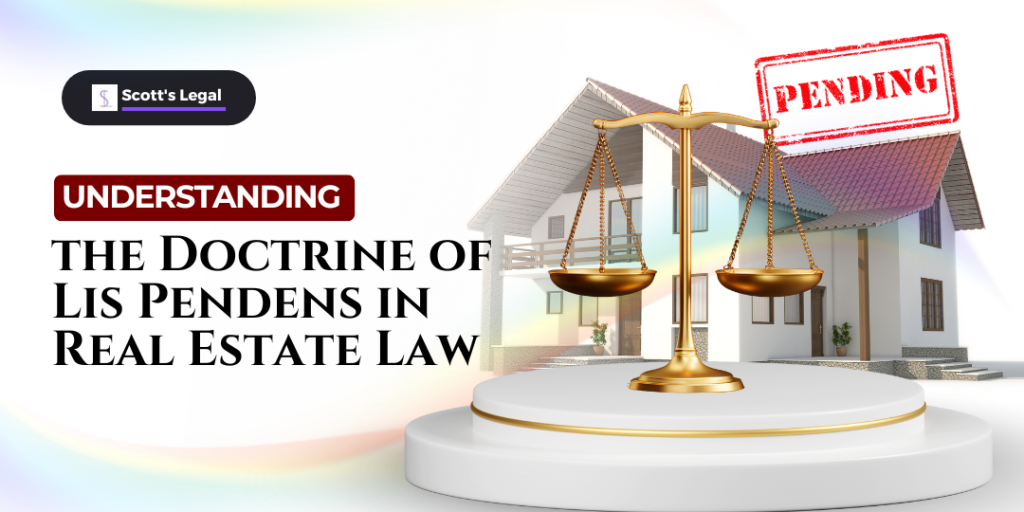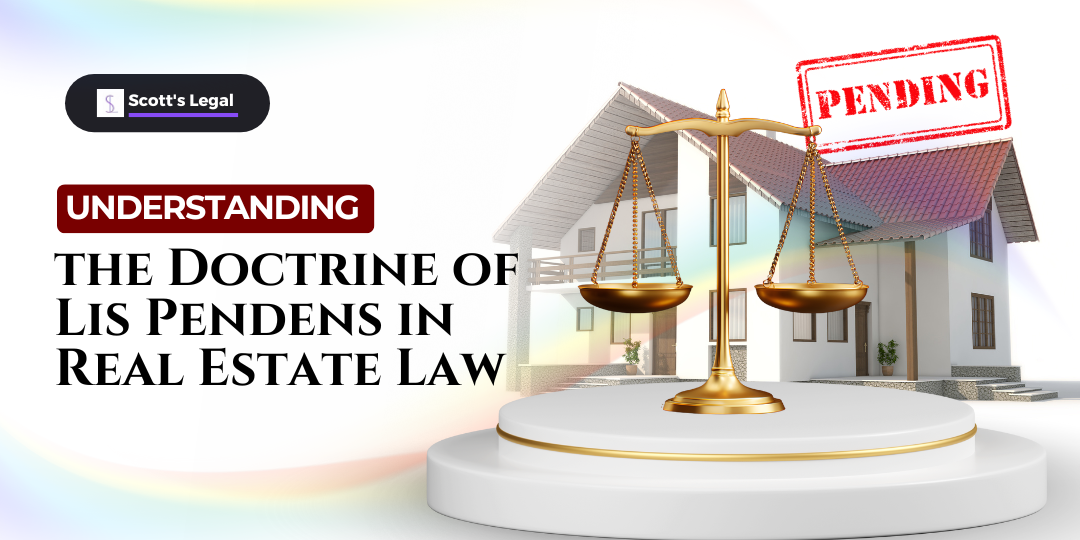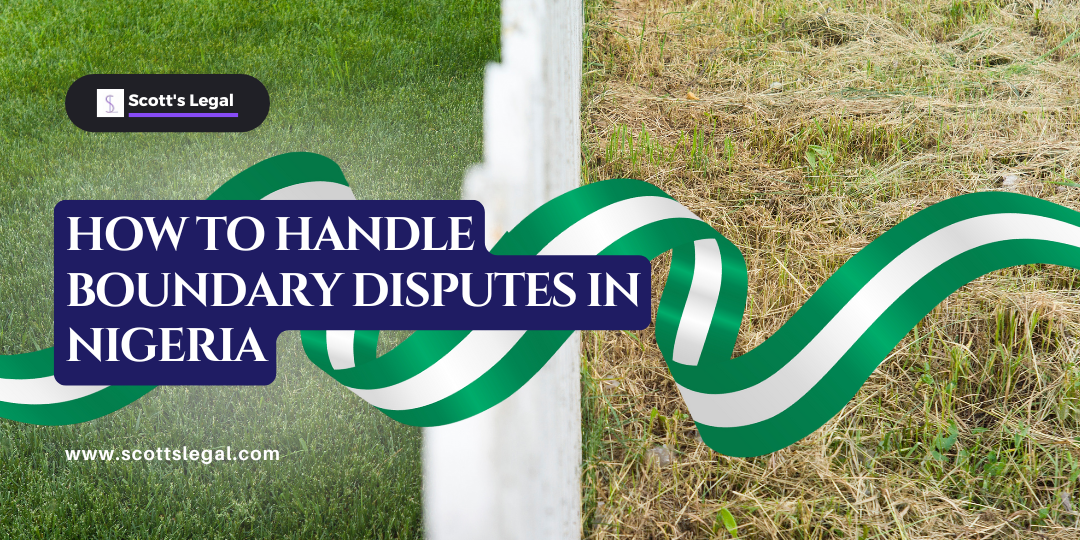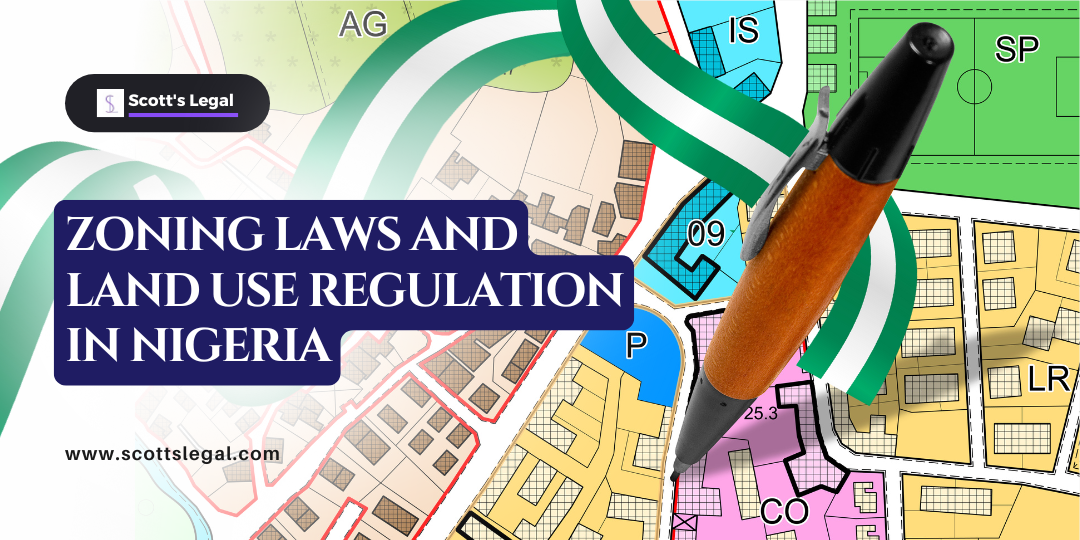Understanding the doctrine of lis pendens in Nigeria is essential for any real estate investor seeking to avoid legal risks associated with purchasing or developing land under dispute.
In simple terms, the doctrine protects the integrity of property litigation in Nigeria by preventing parties from transferring, selling, or altering a property while a lawsuit involving that land is still pending.
This principle, which reflects the lis pendens meaning (“pending litigation”), ensures that court decisions regarding land are enforceable and not undermined by third-party transactions.
For investors, this doctrine directly affects due diligence, property acquisition, and the security of title documents such as a Deed of Assignment or Certificate of Occupancy (C of O). Understanding how it works can prevent costly mistakes.

What Is the Doctrine of Lis Pendens in Nigeria?
The doctrine of lis pendens in Nigeria is a common law rule that renders any sale, transfer, or encumbrance of a property under litigation null and ineffective against the eventual judgment of the court. In essence:
- No party may legally transfer ownership of a disputed property during a pending court case.
- Any buyer who acquires such land takes it subject to whatever the court ultimately decides.
- The doctrine helps preserve the property’s status until the legal dispute is fully resolved.
This rule applies automatically, meaning parties cannot avoid it simply because no formal notice was registered.
Legal Framework Governing Lis Pendens in Nigeria
A. Common Law Origins
Lis pendens is rooted in English common law and was incorporated into Nigerian jurisprudence. It operates immediately once a lawsuit involving land begins. No registration, caveat, or public announcement is required for the doctrine to take effect.
B. Judicial Recognition
Nigerian courts have repeatedly upheld this principle to safeguard court processes and prevent parties from defeating pending judgments. Key cases include:
- Ekpendu v. Erika (1959): The court held that any transaction carried out while litigation over land is pending is ineffective if it attempts to defeat the court’s eventual judgment.
- Olusola Orioke v. Onayemi & Ors: The court invalidated a Deed of Assignment executed during ongoing litigation, ruling that such a transfer sought to render the judgment nugatory.
These cases confirm that the doctrine applies irrespective of a buyer’s intention or awareness of the suit.
C. Scope of Application
The doctrine applies broadly to:
- Ownership disputes
- Boundary disagreements
- Claims involving revocation or allocation of land under the Land Use Act
- Disputes over possession or trespass
As long as the property is the subject of litigation, any transaction affecting that land is automatically subject to lis pendens.
Why the Doctrine of Lis Pendens Matters
1. Preserves the Status Quo
The doctrine ensures the disputed property remains in the same condition until the court reaches a final decision. This prevents irreversible actions such as construction, demolition, or subdivision.
2. Protects Judicial Authority
Courts must be able to enforce their judgments. The doctrine prevents litigants from undermining the judicial process by transferring land to third parties during the case.
3. Prevents Fraud and Exploitation
Without this rule, a dishonest litigant could sell the same land to unsuspecting buyers to frustrate the case. The doctrine shields innocent third parties from being misled.
4. Ensures Effective Enforcement of Judgments
When a case concludes, the court’s decision must bind the property, not merely the parties. Lis pendens ensures that a judgment remains enforceable regardless of any attempted sale or transfer during the proceedings.
Key Elements Required for Lis Pendens to Apply
The doctrine only applies when certain conditions exist:
1. Pending Litigation
There must be an active lawsuit in a competent court.
2. Identifiable Property
The property must be clearly described and directly connected to the suit.
3. Constructive Notice
Even without public registration, parties dealing with the land are deemed to have constructive notice of the pending case. Courts presume buyers should investigate the status of the property before purchase.
Implications for Real Estate Investors and Developers
Understanding the doctrine of lis pendens in Nigeria is vital for risk management. Below are the key implications:
A. For Buyers
- Conduct thorough due diligence to confirm whether the property is subject to pending court cases, land, or any form of litigation.
- Search court records, land registries, and ask surrounding landowners.
- Retain a property lawyer to review documents, verify claims, and investigate encumbrances.
B. For Sellers
- A seller must disclose any ongoing litigation involving the property. Concealment exposes them to liability and may invalidate the transaction.
- Selling property under litigation can result in financial loss, contempt of court, or criminal allegations, depending on intent.
C. For Lawyers, Agents, and Developers
- Legal practitioners and real estate agents must advise clients to avoid acquiring or developing land under litigation.
- Developers should verify land records before commencing construction to avoid demolition orders or injunctions.
Practical Examples
| Scenario | Application of Lis Pendens |
|---|---|
| A family member sells land while another family member is in court challenging ownership | The transaction is void against the court’s eventual ruling. |
| A buyer builds on land already subject to a boundary dispute case | The court may order demolition depending on the outcome. |
| A community sells land that the government is litigating over for acquisition | Any sale is subject to the final judgment and may be nullified. |
Limitations and Exceptions to Lis Pendens
Although the doctrine is powerful, Nigerian courts acknowledge certain limitations:
1. Good-Faith Purchasers
In rare situations, typically where there was no reasonable way to detect the litigation, the courts may protect a bona fide purchaser who acted honestly and without notice. However, this protection is limited and depends on the facts.
2. Abuse of Process
Parties cannot file frivolous lawsuits simply to prevent legitimate transactions. Courts may strike out such suits and lift the effect of lis pendens.
3. Court-Ordered Exceptions
In special circumstances, a court may order that a property be sold or transferred despite pending litigation (e.g., where the proceeds must be preserved for the parties).
How Disputes Involving Lis Pendens Are Resolved
When lis pendens is invoked, disputes are usually resolved through:
1. Litigation
The court hears the matter and determines the rightful ownership or interest in the land. Once judgment is given, it binds any party who acquired the property during litigation.
2. Mediation or Settlement
Parties may negotiate or settle out of court, especially to avoid lengthy litigation.
3. Court Orders
A party may apply to lift or vary the restriction imposed by lis pendens if it becomes unjust, unnecessary, or abused.
Practical Tips for Investors and Developers
To avoid complications involving lis pendens:
- Always verify title documents and investigate litigation status before paying for property.
- Conduct searches at both the Land Registry and the High Court.
- Avoid purchasing any land where litigation or community disputes are suspected.
- Engage real estate lawyers and surveyors to guide the transaction.
- Keep detailed records of all agreements, notices, and documents.
Conclusion
The doctrine of lis pendens in Nigeria is a crucial safeguard that protects court proceedings and ensures that judgments involving land are not rendered ineffective by unauthorized transactions.
For investors, understanding this doctrine and conducting proper due diligence can prevent significant financial losses and legal complications. In every transaction, the guiding principle should be caution: never buy or develop property involved in pending court cases, land or unresolved disputes.
Other Articles On The Blog
Navigating property laws in Nigeria can be complex, but the right legal guidance makes all the difference.
At Scotts Legal, we provide expert support in property acquisition, title investigation, registration, and property management, helping real estate investors make confident, compliant, and secure decisions.
For consultations and inquiries, send us a message – here.





